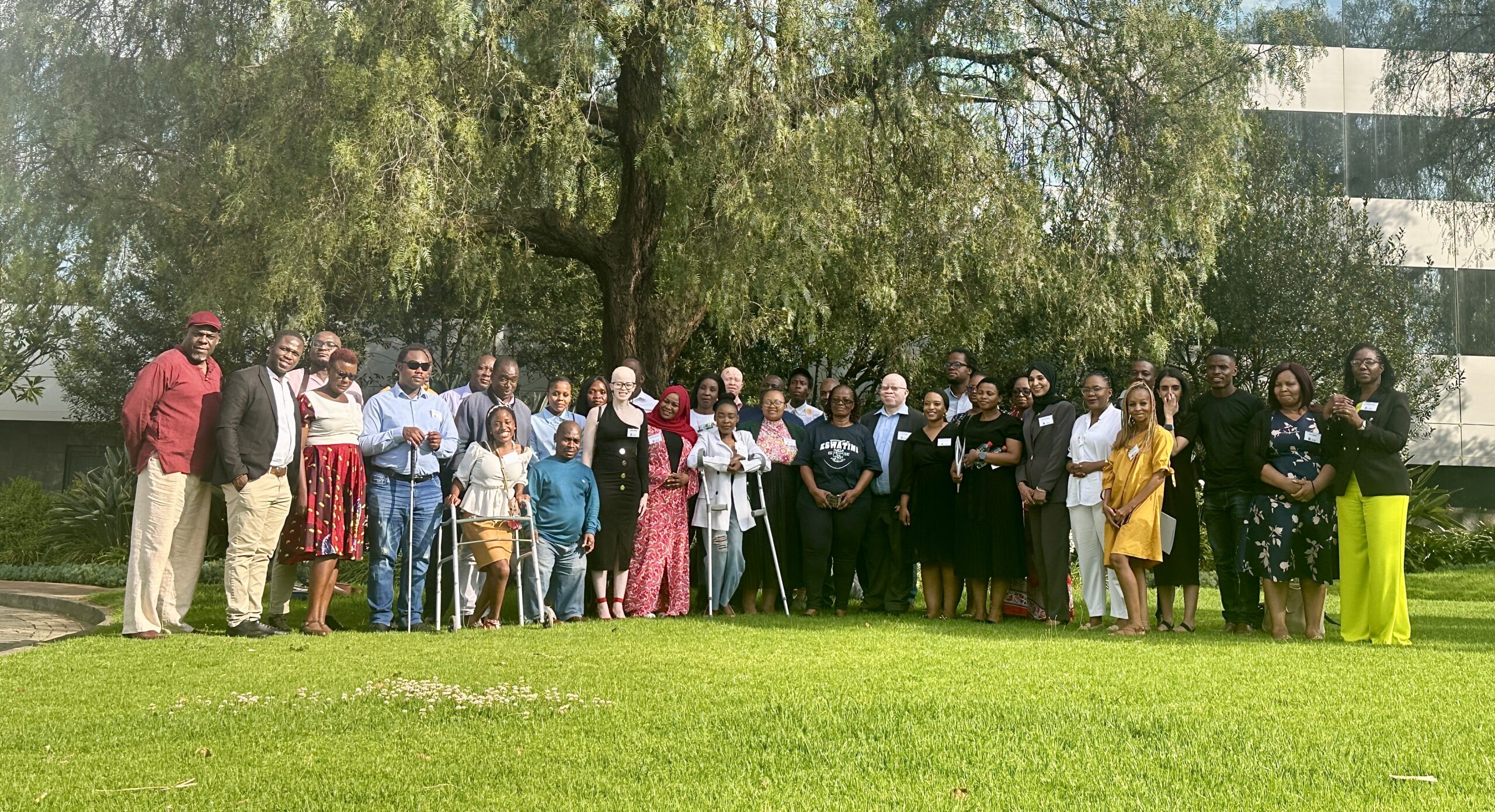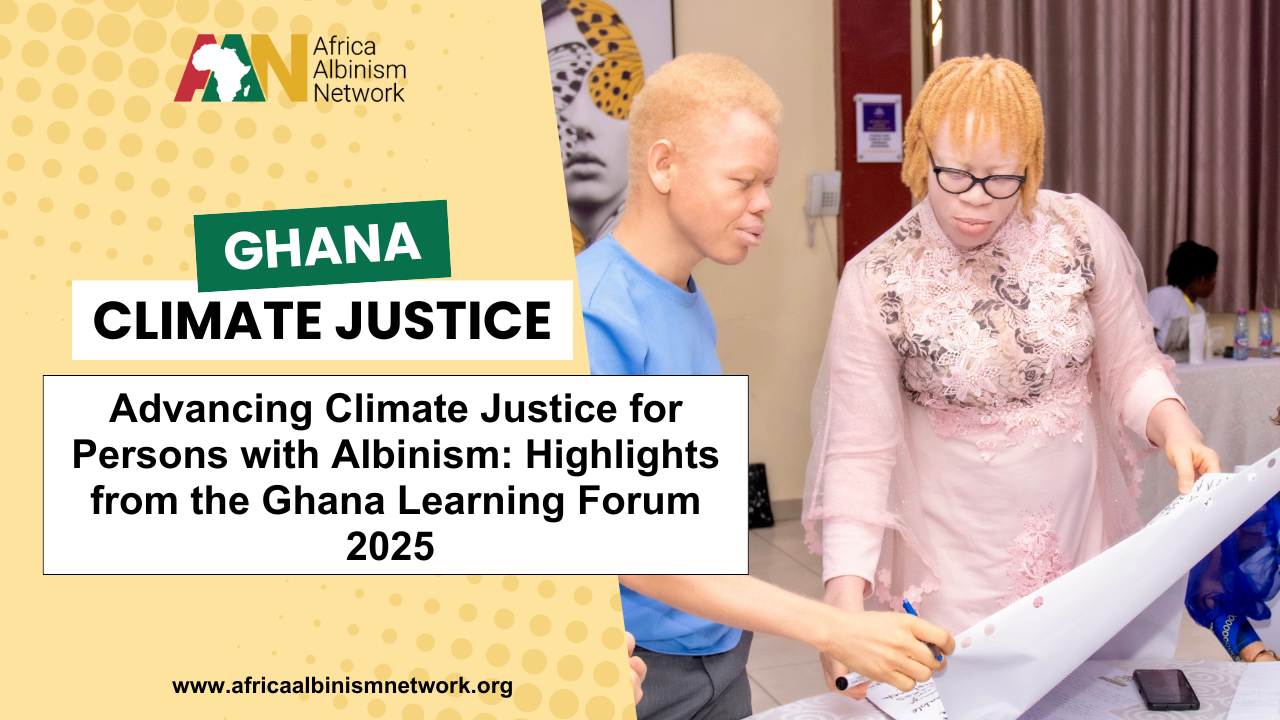Climate change is considered the most significant health threat of the 21st century, hence why the theme of this year’s 11th Disability Rights in Africa Conference centered on a crucial topic, one that needs the world’s attention and calls for immediate action: “Climate Change and Disability in Africa: A Human Rights Response” held from the 20th to the 21st of November in Johannesburg, South Africa.
11th Annual Disability Rights in Africa Conference https://t.co/p1Rlchv9iE
— CentreForHumanRights (@CHR_HumanRights) November 20, 2023
The aim of the conference was two-fold:
- To critically appraise laws, policies, practices, programs, and ideologies that relate to the rights of people with disabilities in Africa in the context of climate change.
- To suggest remedial responses (domestically, regionally, and globally) to address violations of the rights of people with disabilities in climate crises.
Africa Albinism Network’s (AAN) Advocacy Manager, Kwame Andrews Daklo, brought to light the sad reality on the ground: that people with albinism are dying at an alarming rate not seen before, with current statistics placing life expectancy at just below 40 years. This makes skin cancer a deadlier force, alongside the ritual attacks that many people with albinism already face in Africa.

Center & behind: AAN’s Kwame Andrews Daklo and other conference participants
Using real-life images of people with albinism suffering from the effects of climate change, Kwame explained how higher ultraviolet rays increase photophobia and eye damage and cause people with albinism to burn severely in 20-30 minutes of sun exposure, exacerbating an already complex issue. We’d hoped that, in doing so, the world would get to see the intersectionality of climate change and albinism and the need for urgent action.
Many countries in Africa have begun to put measures in place to combat climate change and its adverse effects; however, many of these measures have excluded marginalized populations, such as people with albinism. To be effective, measures seeking to address the effects of climate change must be inclusive and approached using a human rights-centered method. By framing the conversation as a human rights concern, AAN aims to prompt meaningful action and advocacy, challenging the participants to recognize the interconnectedness of climate justice and disability rights.
“We’d hoped that in doing so, the world would get to see the intersectionality of climate change and the need for urgent action.” – Kwame Andrews Daklo
We recommend the following strategies as essential for protecting the rights and well-being of people with albinism.
1. Inclusive Healthcare Services
- Implement skin cancer prevention and treatment programs accessible to all, addressing the unique needs of people with albinism.
- Eye screening and the provision of lenses and UV-protective sunglasses.
- Sunscreen is to be included as an essential medicine.
2. Resilient Educational Systems
- Develop educational systems that can adapt to climate disruptions, ensuring continued access and support for students with albinism, including uniforms that cover the whole body from sun exposure.
- The use of wide-brimmed hats and other protective gear such as sunglasses.
3. Equal Employment Opportunities
- Advocate for inclusive workplace policies, awareness, and anti-discriminatory measures to enhance job prospects and career development for people with albinism. For example, accommodations to allow for working indoors.
- Medical health insurance to extend to sunscreen and protective clothing.
4. Climate Adaptation & Mitigation
- Address the root causes of climate change through mitigation efforts and invest in adaptation efforts that protect vulnerable communities.
5. Community Engagement & Awareness
- Promote awareness and understanding to reduce stigma and discrimination against people with albinism.
To be effective, measures seeking to address the effects of climate change must be inclusive and approached using a human rights-centered method.
People with albinism worry about their future and delaying action will result in greater suffering, discrimination, and exclusion. It is our collective responsibility to take action and advocate for change, as nothing about us without us can be done.
Finally, by signing the petition to the World Health Organizations (WHO), we can push for global acknowledgement and support to make sunscreen accessible and affordable. This action, combined with local initiatives and awareness campaigns, can significantly reduce the risk of skin cancer for People with albinism.


